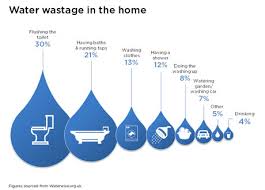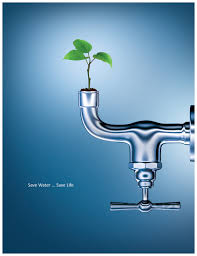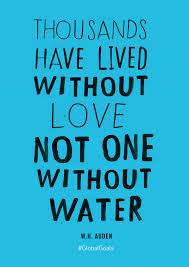Shall we talk about water in every home?
Several parts of the southern and western country are going through a severe water crisis due to repeated failure of rains. The water shortage is felt not kust rural areas but also in poorer parts of cities as well. However, our habits of water use don’t seem to change easily. Once we get water, we don’t hesitate in wasting it. We can surely change our habits if we start commenting on wasteful habits in every day conversations. This kind of mild shaming may work. Just as appreciating those who stand out for their prudent practices may help too.
First habit that need to change is to use bottled water on every social occasion. Apart from the spreading plastic waste, it conveys failure of state in assuring common citizens that tap water can be considered safe for drinking. This is not acceptable. Every municipality should give top priority to improve water quality and supply position. In rural areas, the drinking water mission should on priority cover all unsafe/insufficient drinking water villages and introduce ponds/recharge wells/filtration systems etc. let us assume that at least 100,000 villages need urgent attention in this regard. High net-worth individuals and corporations may be allotted these villages to supplement community and government efforts in ensuring potable drinking water supply. Second habit is to use obsolete water wasting technologies in sanitation, toilets, bathrooms, kitchen, and several other places. How can we use old style flushing technologies which are enormously water wasting. We need urgent public policy for a time-bound change of such fittings in all public and private establishments. Third habit is to use drinkable water for gardening, sanitation, and other such purposes. This is completely unacceptable. May be installation of water treatment and reuse supply system needs to be incentivized.
Third habit is to keep tap open while washing hands, brushing teeth, cleaning utensils and performing other such chores. Every school must ingrain among children values of economical use of water. Unless children start commenting on irresponsible adult behavior, we will perhaps not change our mindset.
Fourth habit is to neglect roof top water harvesting system in cities. It has been argued for so long by so many and yet we are still to see a systamtic implementation of this policy. It is so simple that all connections, water and electricity should be made contingent on compliance with this and the result will follow. Not all polices are implemented through persuasion. Some need moral and institutional coercion.
Fifth habit is to neglect in situ water conservation despite realizing that long term solution to water crisis depends upon this path. Latur is suffering, so are so many other parts of the country. During our shodhyatra in summer in Wardha some years ago, we had found two ponds, only two ponds full of water. It proved that water could be conserved till summer when scarcity arises. Yet, why were there only two ponds, is a question that was not answered. This habit of knowing a solution but not giving it a fair chance has to be shed.
Sixth habit is to accord legitimacy to highly discriminative styles of water use policy implying 200 litres per capita in so called developed part of the cities and 20 litres per capita in certain parts of inner city. This is not sustainable.
We should realize that future peace and order will depend upon fair conservation, use, distribution and re-use of water. We can not delay these measures for too long without exacerbating the social tensions. Let us hope that in very home, a conversation will start about how can we change our habits of water use and sharing. Only then a sustainable change will come about.




